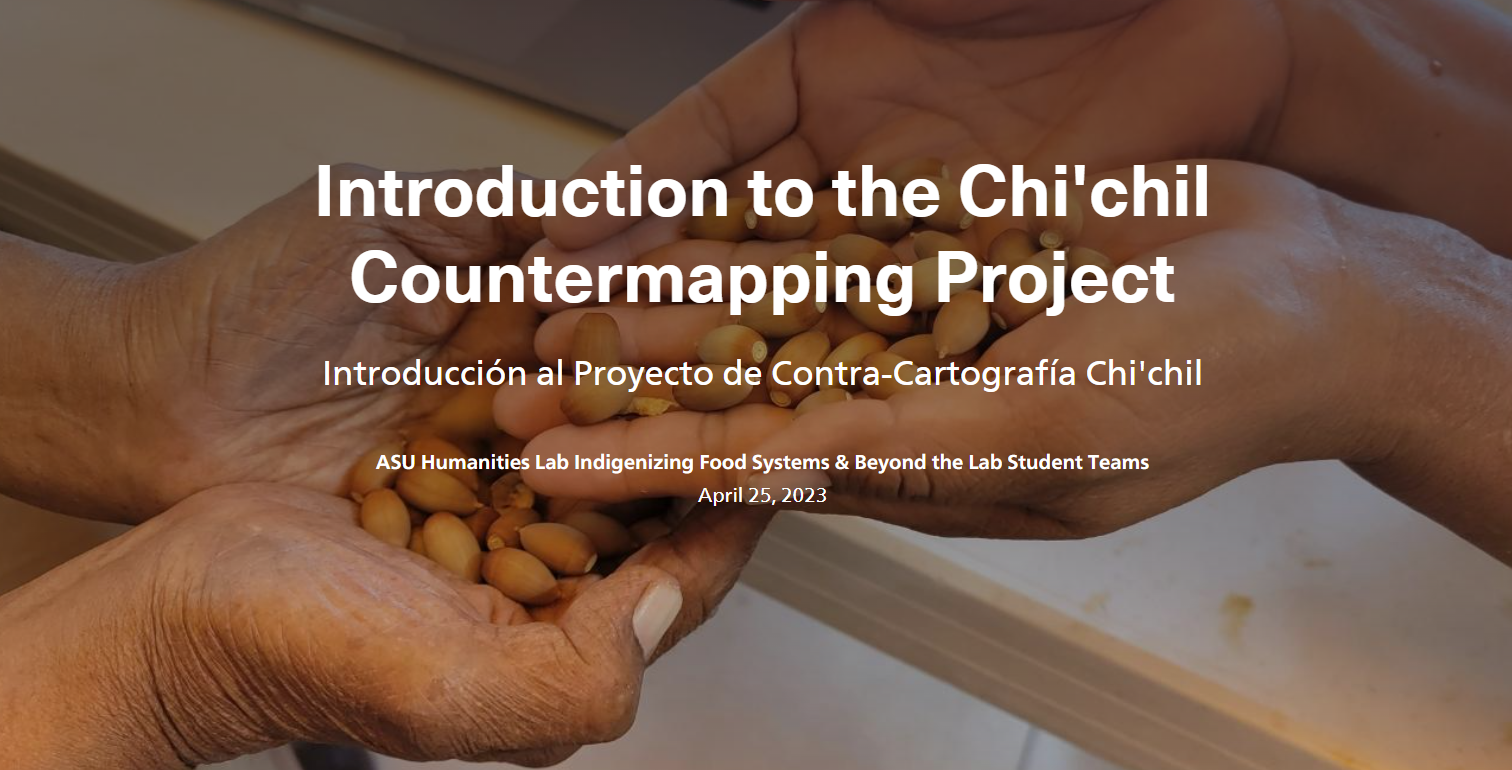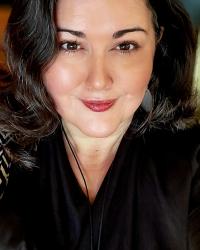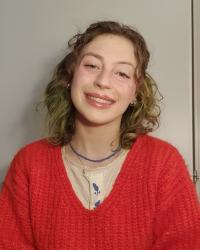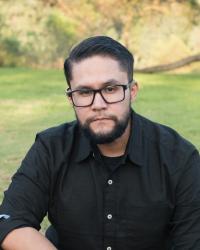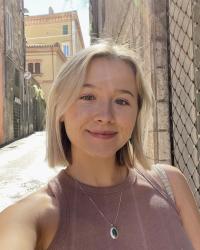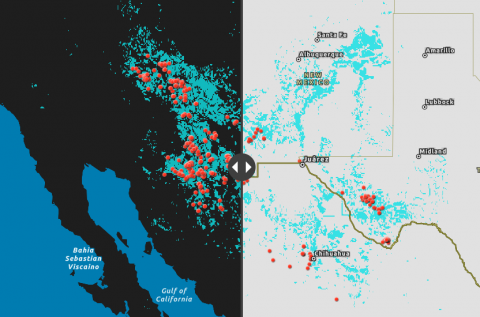
Beyond the Lab - Spring 2023
Chi'chil Countermapping Project
Beyond the Lab 2023 – Chi'chil Countermapping Project
In the Spring of 2022, an interdisciplinary team of Humanities Lab – Indigenizing Food Systems students co-designed a deeply impactful outcome while forming a unique bond. From there, along with a couple of new members, the team applied for the Humanities Lab's Beyond the Lab program as well as a corresponding Seize the Moment grant fellowship, to which they were awarded both.
Designed with Apache community members from Arizona and Mexico, the Chi'chil Countermapping Project is the outcome of a year-long journey. The Chi'chil Countermapping Project is a digital storytelling initiative rooted in decolonial mapping and the centering of Apache voices and values. It features online GIS growth range maps and interactive story maps of the Emory Oak tree (“chi’chil” in Western Apache) and its acorns, which are culturally and ecologically significant to Apache people in Arizona and Northern Mexico. The map takes a two-eyed seeing approach of ecological and Indigenous knowledge while highlighting the personal stories and experiences of Apache people with chi'chil. The English/Spanish/Western Apache outcome is designed to be accessible for all ages for Apaches on both sides of the US/Mexico border and is envisioned as a potential use case in Apache community STEM programs for storytelling, citizen science, and Apache ecocultural knowledge.
Learn more about the Beyond the Lab team and their journey below and view their final outcome here.
Team Bios
Alycia de Mesa is a mixed-race American of Apache of Chihuahua, Mexico; mestiza of Aguas Calientes, Mexico; and Japanese of Kyushu Island descent. She was born and raised on traditional Onk Akimel O’odham land by her maternal grandparents. Alycia is a doctoral candidate in the College of Global Futures, completing her PhD in Human and Social Dimensions of Science and Technology in the School for the Future of Innovation in Society, where she is exploring Indigenous Knowledge Sovereignty through digital storytelling and counter mapping.
Elisa Colard-Minardi, is an undergraduate student pursuing a major in sustainability and a minor in urban planning. She chose this path after taking an introduction course to urban planning and realized that, as the populations of our cities grow, so will issues like overpopulation, the heat island effect, and housing inequity. Furthermore, she was motivated by the interdisciplinary aspect of sustainability, as it allows me to meet and work with people from different ethnic, cultural, and professional backgrounds. She wouldn’t have been introduced to the Chi’chil Countermapping Project if it wasn’t for this discipline. She is looking forward to understanding more about the Arizona’s Apache tribes’ relationship with the Chi’chil as well as learning more about one of Arizona’s first nations.
Gustavo Guttierez is a first-generation college student of Colombian descent currently studying at Arizona State University. As a Geographic Information Science major, Gustavo is passionate about using GIS in the clean and alternative energy sector to provide design-based solutions for a sustainable future. With knowledge and skills in GIS technology, he is working towards a career where he can make a real-world impact and contribute to a greener future.
Jenna Bryant is a senior in the School of Sustainability at Arizona State University. She is pursuing a Bachelor of Science in Sustainability with a focus on sustainable ecosystems and a certificate in Sustainable Food Systems. She is passionate about making food systems more regenerative and sustainable while also helping people become more connected to where their food originates. She has been a part of the Chi’chil Countermapping Project since the spring of 2022 and is looking forward to seeing what it becomes in the future.
Original Impact Outcome
The original project from the spring 2022 semester reflects an Indigenous methods approach to creating an interactive, online counter map of Emory Oak and its acorns (called “chi’chil” in the Western Apache language) that grow in the borderlands of US Southwest and Northern Mexico and are culturally and ecologically significant to Apache people throughout the area.
View the initial ArcGIS storymap site here.
Problem Statement for Beyond the Lab
The team seeks to address the problem of colonial maps that do not accurately represent Indigenous identities. The project focuses on creating an interactive map of Emory Oak tree growth areas, particularly in the US Southwest and Northern Mexico, and highlighting the cultural importance of the acorn, or chi’chil, to Apache people. The map presents a borderless view and includes traditional ecological knowledge and Western ecological content in Western Apache, English, and Spanish languages, while centering Indigenous perspectives. The project intersects with Apache health, social and cultural identities, traditional ecological knowledge, Western ecology, and technology.
Unveiling at ASU University Sustainability Practice's Earth Festival
With regular meetings throughout the semester, numerous field work travel trips and countless hours of dedication, Alycia, Jenna, and Elisa (with Gustavo working remotely) unveiled their final work to numerous students, faculty, and guests of the general public at ASU University Sustainability Practice's Earth Festival held in April 2023 during Earth Month.
Final Outcome
The final Chi'chil Countermapping Project tackles the colonial nature of geopolitical maps using decolonial and two-eyed seeing methods to center the Emory Oak trees’ stories as ecoculturally unique and significant to Western Apaches. The ASU student team consulted Apache community members in Arizona and Chihuahua, Mexico throughout the project to respectfully and ethically gather stories, place names, and language translations. The project engages in transdisciplinary and interdisciplinary storytelling methods, including video, oral stories, pictures, and audio recordings of both Apaches and lands where chi’chil grows. In alignment with Indigenous data sovereignty principles, the stories are the intellectual property of the respective Apache contributors.
The final outcome consists of the revised map with:
● Additional stories gathered and contributed from Apache individuals
● Abundant sounds of nature (from nature) as a soundtrack to the environment itself at Oak Flat and other locations
● Further translations in Spanish and Western Apache
● GIS fine-tuning for data and map display for enhanced user experience
● Enhancement of the StoryMaps visual design
● Field work and story gathering
The team's final outcome can be viewed here.
